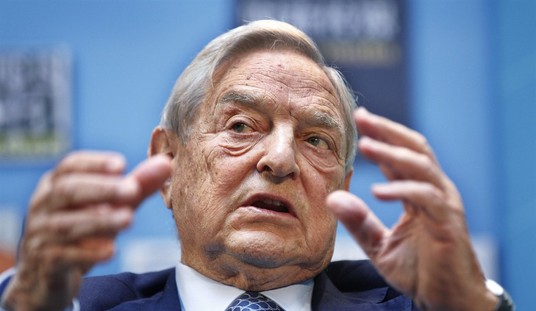The spectacular dominance of America's Magnificent Seven tech firms -- with $1 trillion-plus market caps -- has been a marvel to behold and a genuine source of American pride. This is a theme that both President Donald Trump and Vice President JD Vance have in celebration of American business prowess.
The Magnificent Seven companies -- Amazon, Apple, Google, Meta, Microsoft, Nvidia, and Tesla -- have a combined net worth greater than all the companies in Europe. Now that's Chiefs-versus-Eagles dominance.
The mystery is why many regulators in Washington view these digital-age companies, whose continued rocket-ship growth has created hundreds of thousands of high-paying jobs for Americans, as villains not heroes. They keep calling for a blanket of smothering regulations via antitrust laws to rein in their market power.
Now, lawyers and lawmakers in Europe are taking action to stifle these companies. It would be like the government calling on the Beatles and the Rolling Stones to stop writing so many hit records because it isn't fair to all the other bands.
These court actions are particularly pernicious because the cost of internet services, search engines, cellphones, online shopping, artificial intelligence, and electric vehicles has come down. However, the courts and lawyers say that this is crowding out smaller startups. The sharks are apparently swallowing up the minnows.
But this whole "break up" Big Tech mentality advanced on the left and the right is particularly misguided because the tech industry of 2025 is characterized by thousands of smaller and often more nimble "little tech" companies that compete with each other and Big Tech, providing exciting catalogs of new products.
Recommended
A competitive tech sector is characterized by a healthy mix of established, scaled firms alongside smaller, nimbler firms -- both working together and competing with each other to innovate and deliver for their customers.
On the back of recent breakthroughs in everything from AI to robotics to self-driving cars, tech companies of all sizes coexist in a vast and vibrant race to the top. Out of this ecosystem will surely emerge a new generation of monster hits as transformational as Steve Jobs' personal computer and the first Google search engine.
Out of these thousands of startups will emerge the next generation of Googles and Apples. If history is any guide, it's a good bet that, sometime in the years ahead, the young upstarts will knock the big guys off their exalted perches. We don't worry too much anymore about AOL dominating the internet, nor Intel dominating microchip production.
Think about today's high-rising titans. Raise your hand if you had heard of Nvidia or OpenAI five years ago.
Big firms incubate the talent that starts small firms. Former employees of America's tech leaders often go on to start their own hugely successful businesses. OpenAI cofounder Wojciech Zaremba worked at Meta. YouTube was founded by former PayPal employees. A former Tesla employee cofounded the news and opinion platform Substack.
Former Googlers have created over 2,000 startups, including Inflection AI, Adept AI, Cohere, Perplexity AI, Twitter, Instagram and Pinterest. And 14 out of the world's 50 most successful AI startups were founded by former Google employees. Larger firms play a key role in incubating tech talent and ideas, catalyzing new startups and innovation that benefit consumers and the wider economy.
How many times have you heard the complaint that American companies are too short-term-oriented and don't look past the next quarterly report? Then how is it that Google invests more than $10 billion a year in research and development? Why is it that Meta has invested over $46 billion since 2021 into Reality Labs, focusing on building augmented reality and virtual reality?
Many of the breakthrough achievements of the next decade are just as likely to come from venture capital-funded startups that no one has heard of today. In Silicon Valley, these disruptive upstarts like OpenAI are known as unicorns. As of 2024, the world had more than 1,400 unicorns, over half of which were founded in the United States.
Why is "little tech" housed in Silicon Valley and other American tech corridors like Austin, Texas, and Salt Lake City? Because they feed off the creativity and dynamism of a risk-taking venture capital ecosystem that is nowhere else in the world to be found.
Federal regulators and the antitrust cops are the poisonous disrupters of these capitals of innovation. The ethos of Washington is: You can succeed and grow and become profitable -- but not too much. If this anti-success attitude is allowed to prevail, the casualties won't be the Magnificent Seven but the next generation of trillion-dollar companies. Oh, they will come just not from America.
Stephen Moore is a visiting fellow at the Heritage Foundation. He is also an economic advisor to the Trump campaign. His new book, coauthored with Arthur Laffer, is "The Trump Economic Miracle."

























Join the conversation as a VIP Member